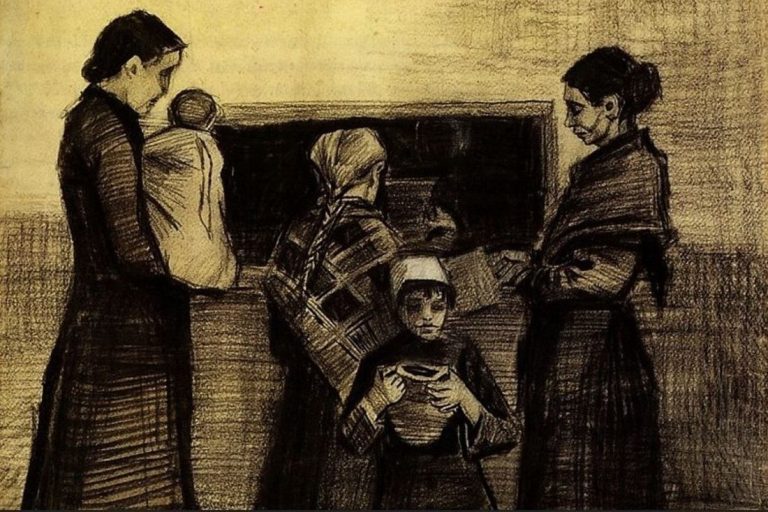
Ancient Anglican
A Modern Perspective on Early Christian Thought.
New on the Blog
The Lord’s Prayer – A Prayer for the Poor
In the actual text of the Sermon on the Mount, for instance, at least in the original Greek, an ominously archetypal figure, identified simply as “the wicked man” (ὁ πονηρός), makes a brief appearance. He is almost certainly meant to be understood as a depiction of the sort of avaricious, disingenuous, and rapacious man who routinely abuses, deceives, defrauds, and plunders the poor.
Becoming a Healing Presence: Embracing Ambiguity, pt.2
Like Schrodinger’s Cat, we need to recognize and embrace the ambiguity we encounter in our spiritual lives and in our relationships with other.
Becoming a Healing Presence: Embracing Ambiguity, pt.1
Part of being a healing presence and living in the present moment requires us to understand that, most of the time, we simply do not understand.
Becoming a Healing Presence: Suffering and Death, pt.2
Memento, Mori (Remember, thou art mortal)
Becoming a Healing Presence: Suffering and Death, pt.1
The stumbling block to Jews and foolishness to Gentiles is that therefore God also suffers and dies as we do. God still doesn’t provide us with the answer, but he does say 1) that he has suffered as we have suffered, and 2) death and suffering are not the end.
Becoming a Healing Presence: Sacrament of the Present Moment, pt.2
This more ancient understanding of a sacrament includes anything that communicates and manifests God’s grace. Think about how the present moment is sacramental. How does being present make us one with God’s grace?
Becoming a Healing Presence: Sacrament of the Present Moment, pt.1
God is eternally present. Therefore, it is only in our experience of the present that we “have the experience God has of reality as a whole.”
Becoming a Healing Presence: Surrender
Surrender is not a passive capitulation, rather it is a “receptive engagement with the present.”
Becoming a Healing Presence: Gentleness as a Mindset, pt.2
Gentleness respects boundaries. Being gentle means allowing others to live their own lives and carry their own burdens. We are to be a healing presence to others, not their savior.
Becoming a Healing Presence: Gentleness as a Mindset, pt.1
The homework this week is to be aware of those situations in which we have been treated by others with the gentleness of Christ and how we have treated others with the gentleness of Christ.
Becoming a Healing Presence: Vocation as a Way of Life, pt.2
Sanctity is a process of subtraction. We need to subtract our sinful nature and our agenda in order to get us our of God’s way and allow him to work in us.
Becoming a Healing Presence: Vocation as a Way of Life, pt.1
Our vocation is to see the world as God sees it and to bring the healing presence of the love of Jesus Christ to those in need. Our vocation is simply to be a healing presence to those around us.


